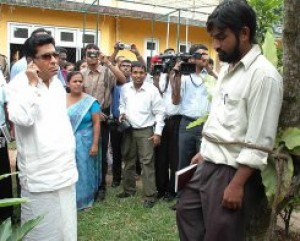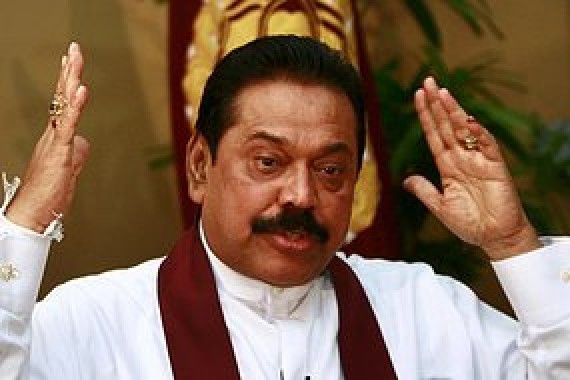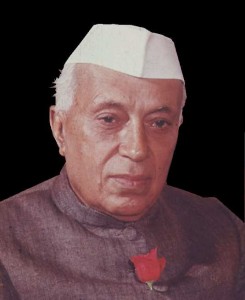The Ban Ki Moon report on Sri Lanka and the dying conscience of a nation…
The US Department of State 2010 Country Report on Human Rights Practices was released on April 8, 2010 with its preface painting a gloomy picture of the human rights situation in Sri Lanka. It details quite vividly, among others, the alleged abductions, torture and killings of people, the dates and places of such crimes and a list of people gone missing. Pradeep Ekneligoda, the missing Lanka E News reporter and General Sarath Fonseka, rotting in jail are prominently mentioned in the Report.
But the Sri Lankan government is in denial mode. Instead of answering the specific allegations it issued the usual denials through various media, asserting that the report was fundamentally flawed.
In the wake of this release, the ‘Ban Ki Moon’ Report was also handed over to the Government, snippets of which had been controversially leaked to the press as well. These selective releases were attributed to the Government by UN Panel spokesperson. It has been reported that a hard copy containing 196 pages was duly handed over to Professor G. L. Peiris and within days extracts of the same had found their way into the pages of the Island newspaper.
At the time the report was leaked to the press, the Ban Ki Moon report had not even been officially released by the UN Panel. The number of persons, who may have seen the report, let alone read its copious contents, may have been just below five in total. Yet many a pundit – not surprising in the Sri Lankan milieu – came out openly to deny the allegations – details of which they could not possibly have known at the time. Among these obviously omniscient characters were some leading personalities of the Buddhist clergy, some UNP parliamentarians, notably its Deputy leader Sajith Premadasa and Dayasiri Jayasekera and a notorious Sinhalese radio personality. In these circumstances, the most simple and logical question that the average citizen could raise is: what is in the report? The report is now freely available on the UN website and on the net and those who have taken the time to actually read it can answer. In any event the onus was always well and truly on the President and his coterie to release the report to the public.
Certainly if any part of the report was favorable to the government there was no logical reason for the government to initiate the process that they embarked on. For instance the frantic call of President Rajapaksa to party organizers, to bring at least 500 people each to the May Day celebrations to demonstrate to the world that the majority of our people denounced the report and stood with the government was noteworthy. For the world at large, except for a very few self-proclaimed human rights watch dogs, it does not matter whether serious omissions or commissions were made by the Sri Lankan armed forces and/or the government in the sphere of human rights during the very narrow period of time towards the very tail end of the war. But all politics is local. The government’s handling of this crisis indicates that they have decided to ignore all norms of shrewd statecraft and instead attempted to invoke the base instincts of Sri Lanka’s people and get them to cry foul against a report, the contents of which were then known only to a handful and even now over two months after the report was made public – one is hard put to find a person who has read its entirety. Thus the Sri Lankan government has apparently made a very crucial blunder by taking its own people for granted, treating them as mere pawns on a big chess board.
If the report is adverse to our Government and armed forces then it is totally a different ball game. In this context the government has two options: namely, 1) reject the report by countering each and every argument expounded in the report with clinical precision and publish them so that the people will know and understand. (2) accept totally or partially, the report or at least the recommendations, if there are any, and take concrete measures to implement them.
The government is doing neither. It must realize that, by taking the current course of action of kindling pseudo-patriotism, it is invoking the base instincts of a very vulnerable and gullible population, pushing them to the fringes of radicalism that, if not checkmated now, will have very serious negative potential. Moreover, if the findings are adverse, the light it throws on the personality of a people, leave alone those who are specifically accused, will be very unsympathetic. This is where the whole responsibility of governance lies.
Pundit Nehru quotes Chankya in Discovery of India thus: “the function of a leader is to make his people free of fear”. Government is

Minister Mervyn Silva ties a public official to a tree as punishment for failing to attend a meeting to discuss the spread of Dengue fever
bent on achieving exactly the opposite, making her people fearful and ashamed. Development of democracy and free speech is as old as man, but it has taken a long time for those institutions and concepts to mature, sometimes only with the sacrifice of thousands of free people. However much a Sinhalese tries to justify the excesses of war, no man can justify the riots that took place in 1983. When LTTE killed 13 soldiers in Jaffna in July 1983 in a clear military operation, the Sinhalese went on a rampage in Colombo and elsewhere and maimed, burned and killed innocent Tamils. In some areas these riots were led by Buddhist monks, the so-called guardians of the teachings of the Buddha, thereby desecrating the very soil of the temples they dwelled in. Buddha never ever preached violence, leave alone discrimination, against any sector of the human family. The mindset created by Mahanama Thero of Mahavihare had come to fruition. The impression that these killing orgies created cannot be erased in one, two or three decades, or perhaps even in a generation or two. The euphoria and the sense of triumphalism generated by the total annihilation of Pirapaharan and LTTE has led to a sickness the symptoms of which are being manifested in irrational opposition to any magnanimity .
In general, the government’s response to the Ban Ki Moon report is grossly inadequate and foolhardy. Obsession with power and self-importance has serious repercussions, more for the citizenry than for the leaders. As the late Lalith Athulathmudali once said, “arguments for human rights can never be foreclosed”. If such violations have been committed by whichever party, it is the fundamental duty of a decent society to see such violations are condemned unequivocally. Martin Luther King Jr. observed during the days of the American civil disobedience movement that one who endures wrongs and discrimination done unto them are as guilty as those who inflict them. In the same vein, if such violations of fundamental human rights have been brought upon by the government and its agencies, military or otherwise, then they have committed a crime against humanity, and if so, it is the right of the people to dissociate themselves from such dastardly acts of man’s inhumanity to man.
In this whole exercise of handling the UN report, the government has disregarded two most vital features of a decent democratic society: transparency and accountability. The process has been kept secret from the very outset and UN contention that they were denied access to war zone is valid. Consequently they depended on the sources that were available to them-the fleeing Tamil refugees and their kith and kin. To that extent, the report is one-sided. However, had the government offered assistance to the panel to visit Sri Lanka and offered total transparent assistance, almost all of these allegations could have been met and refuted. The very accusation that the government is making was made real by the government’s own foolhardy attitude. This happens when rulers resort to politics instead of governance.
Secondly, the accountability factor. This is the one nagging feature of this regime. With the advent of the people’s government (apé anduwa) in 1956, and the gradual rise of corruption and indiscipline among politicians and the present-day tying of government servants to trees by ministers, being condoned as normal Sri Lankan life, accountability has flown out of the window. In such circumstances, if the people at large believe that accountability and transparency are things of the past, then the cruel truth one has to face is: where are we heading as a nation? Is our conscience dead or in the process of dying?


